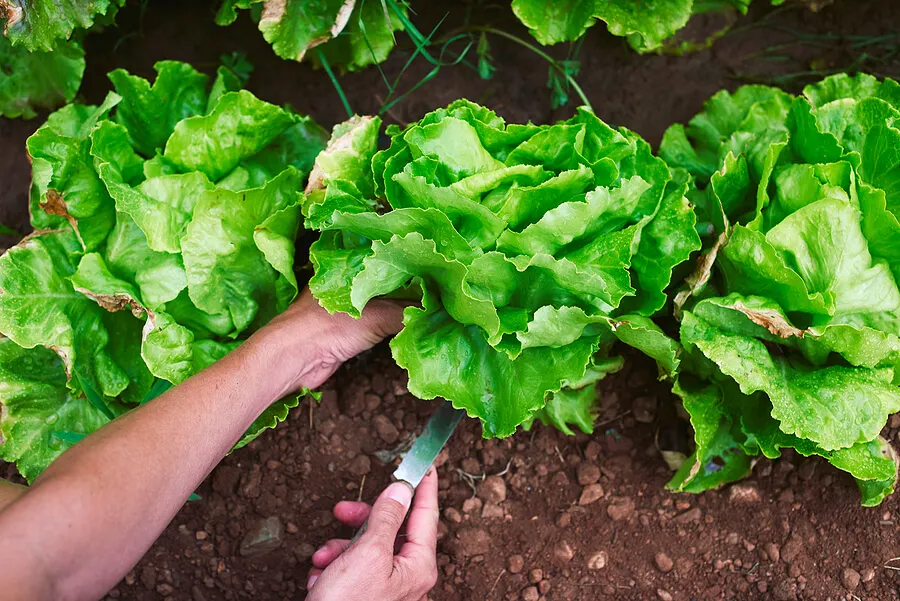Can Aspirin Help Plants to Root?

Using aspirin to root plants is a popular trick that’s very effective and easy to apply. In this article, we’ll ask: Can aspirin help plants to root? We’ll explain its benefits and how you can start using this medicine in your garden.
Aspirin is known to be a useful and popular medicine to treat headaches and pains in general. It’s also used to make masks or cosmetic treatments, for example, to control acne or dandruff.
It’s also used in crops, agriculture, gardening, and ornamental gardening. In conclusion, this invention by Felix Hoffman of Bayer, in 1897, has become an essential part of modern life.
Why is acetylsalicylic acid good for plants?
Aspirin is composed of acetylsalicylic acid, a derivative of salicylic acid. The latter is a compound that plants produce when they’re stressed and helps them cope with situations that cause them harm.
In this sense, aspirin is a compound that’s very similar to the one that plants themselves produce. In this way, it acts to help strengthen the defenses and nutrients of plants, strengthening their immune system.
Salicylic acid is involved in seed germination and cell growth. It’s also part of plant respiration.
Research
The Mexican Society of Soil Science conducted an experiment with wheat seedlings to determine the effect of acetylsalicylic acid on them. The results showed that the roots of plants that had received that compound had favorable results in terms of root fresh weight and total organic matter height and weight.
However, it should also be noted that some academic articles and publications indicate that aspirin for rooting plants or strengthening them doesn’t have many good results.
For example, research published in the scientific journal Agricultura Mesoamericana, which analyzed the effect of salicylic acid on habanero chile seedlings, concludes that this compound favored some characteristics, but didn’t significantly improve the quality of the seedlings.

We recommend reading: 3 Effective Tips to Keep Your Houseplants Fungus-Free
Can aspirin help to root plants?
To ensure aspirin is absorbed by plants and for it to produce the desired effects, it’s necessary to dilute it first in water. It’s important to use one tablet per liter of water. Too much won’t give good results.
Rooting cuttings isn’t always an easy task, especially because they’re often weak. It’s at this point that aspirin plays its main role, giving strength and resistance to the roots.
It also stimulates further growth and prevents rotting or mildew. To do this you should soak the roots for about 4 hours in the aspirin water solution.
If you’re developing cuttings in soil and they’re already planted, you can also use aspirin to strengthen the roots. You only need to use the same liquid compound to water the plant. This process is recommended every 3 months.
We suggest you read: 8 Ornamental Plants that Grow in Clay Soil
Other effects of aspirin on plants
Aspirin is also an excellent ally when you want to revive a parched plant. Research has found that the compound can alleviate the inhibitory effect of a drought by incorporating glucose into the cell wall.
Aspirin can also play a key role in plant protection by promoting a good response to the presence of pathogens. In this sense, using an aspirin solution on plants periodically can help protect them from pests.
On the other hand, aspirin also tends to give positive results when used to keep cut flowers fresh. It works very well with flower arrangements. You should dilute the tablet in the water to be used in the vase.
Other research has also found that this compound has favorable effects on the development of edible plants, such as tomatoes, lettuce, or chard because it produces larger plants and better growth.

Meets the requirements of each species
A common mistake made in gardening or hobby farming is to give equal treatment to all plants. However, each plant species has specific requirements for care, environmental conditions, and nutrients. It’s advisable that, before starting a crop, you get informed, in order to create a situation of optimal development.
Now that you are familiar with how aspirin helps plants in many different ways, you know that it’s a useful component to give nutrients to your garden. However, this should be done in moderation. In excess, it can also have negative effects.
All cited sources were thoroughly reviewed by our team to ensure their quality, reliability, currency, and validity. The bibliography of this article was considered reliable and of academic or scientific accuracy.
- Contreras-Liza, Sergio & Huamán-Tasa, D & Noriega, Huberto. (2017). Efecto del ácido acetil salicílico sobre el comportamiento agronómico de la papa (Solanum tuberosum L.). 21. https://www.researchgate.net/publication/321599526_Efecto_del_acido_acetil_salicilico_sobre_el_comportamiento_agronomico_de_la_papa_Solanum_tuberosum_L
- Guzmán-Antonio, Adolfo & Borges, Lizette & Pinzón-López, Luis & Ruiz, Esau & Aguilar, José. (2012). Efecto del ácido salicílico y la nutrición mineral sobre la calidad de plántulas de chile habanero. Agronomía Mesoamericana. 23. 247-257. 10.15517/am.v23i2.6485. https://www.researchgate.net/publication/260771759_Efecto_del_acido_salicilico_y_la_nutricion_mineral_sobre_la_calidad_de_plantulas_de_chile_habanero
- Hamada, A. M. (2000). AMELIORATION OF DROUGHT STRESS BY ASCORBIC ACID, THIAMIN OR ASPIRIN IN WHEAT PLAN. Indian Plant Physiol. http://ispponline.org/storage/ijpp-5-4-011.pdf
- Senaratna, T., Touchell, D., Bunn, E. et al. Acetyl salicylic acid (Aspirin) and salicylic acid induce multiple stress tolerance in bean and tomato plants. Plant Growth Regulation 30, 157–161 (2000). https://doi.org/10.1023/A:1006386800974
-
Tucuch Haas, Cesar J., & Alcántar González, Gabriel, & Larqué Saavedra, Alfonso (2015). EFECTO DEL ÁCIDO SALICÍLICO EN EL CRECIMIENTO DE LA RAÍZ Y BIOMASA TOTAL DE PLÁNTULAS DE TRIGO. Terra Latinoamericana, 33(1),63-68.[fecha de Consulta 6 de Diciembre de 2021]. ISSN: . Disponible en: https://www.redalyc.org/articulo.oa?id=57335800005
- White RF (1979) Acetylsalicylic acid (aspirin) induces resistance to tobacco mosaic virus. Virology 99 410-412
This text is provided for informational purposes only and does not replace consultation with a professional. If in doubt, consult your specialist.








